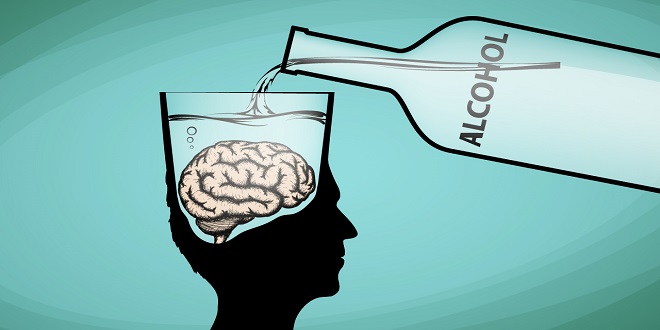Take A Look at What Chronic Alcohol Addiction Does to The Brain

Most adult Americans take alcohol, with one-third drinking at least once daily. The widespread use of alcohol in social life hides the danger of most mental and health problems. But alcohol use is potentially dangerous like it is with other substances.
Excessive use of alcohol is associated with nearly 2.6 percent of all deaths that occur each year in America. Even though moderate consumption of alcohol may not have much effect on the body, compulsive drinking has both short-term and long-term damage to the brain.
The degree to which alcohol damages the brain varies from person to person, and it occurs similarly to other symptoms like dementia. And therefore, it is essential to seek drug and alcohol rehab treatment before it is too late. Below is what chronic alcohol addiction does to the brain.
Interferes with Brain Communication Pathways
Alcohol tampers with the brain’s communication pathways, affecting how it works. The interference of brain communication pathways makes it harder for the brain to control areas like balance, speech, memory, and making judgments. The ability of alcohol to impair one’s decisions increases the risk of adverse outcomes such as injuries.
Long-term alcohol use causes a reduction in the size of neurons and other alterations. Developing brains are more prone to alcohol damage than mature brains; thus, alcohol consumption during adolescence or pregnancy can significantly interfere with brain development. And the long-term effect of it will be a change in the structure of the brain and how it functions.
Alcohol Induced Blackouts
Alcohol-induced blackouts refer to the gaps between the brain’s memory, making it hard for someone to remember the events that occurred when drunk. Excessive use of alcohol blocks the transfer of memories from short-term to long-term storage, a condition called memory consolidation, which usually appears in the hippocampus part of the brain.
An Alcohol Overdose
If someone continues taking alcohol despite early impairments, one is likely to enter an alcohol overdose stage. At this point, there is too much alcohol in the bloodstream, and the brain has difficulty controlling essential life-supporting functions. Such functions include heart rate, temperature control, and breathing.
Treatment for Long-Term Alcohol-Related Brain Damage
Despite the severity of the chronic alcohol addiction to the brain, you can still get treatment at a drug and alcohol rehab. The rehab center will help you to quit alcohol to reverse the brain damage caused by the use of alcohol. The research shows that new brain cells start developing when you abstain from alcohol.
This helps to reverse the damage caused by alcohol use on the brain. It also helps to improve the effectiveness of alcoholism treatment programs. Other treatments offered at drug and alcohol rehab centers include physical therapy, cognitive therapy, speech therapy, and psychological care.
Summary
The various chronic effects on the brain caused by alcohol use; includes interfering with the brain communication pathways, alcohol-induced blackouts, and an alcohol overdose. However, it is essential to note that long-term alcohol-related brain damage can be treated at a drug and alcohol rehab.





